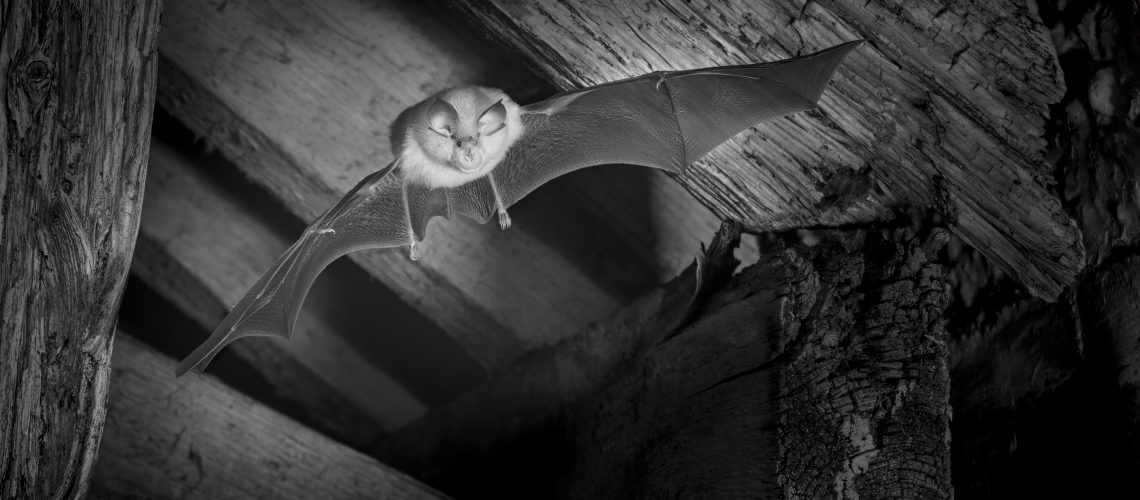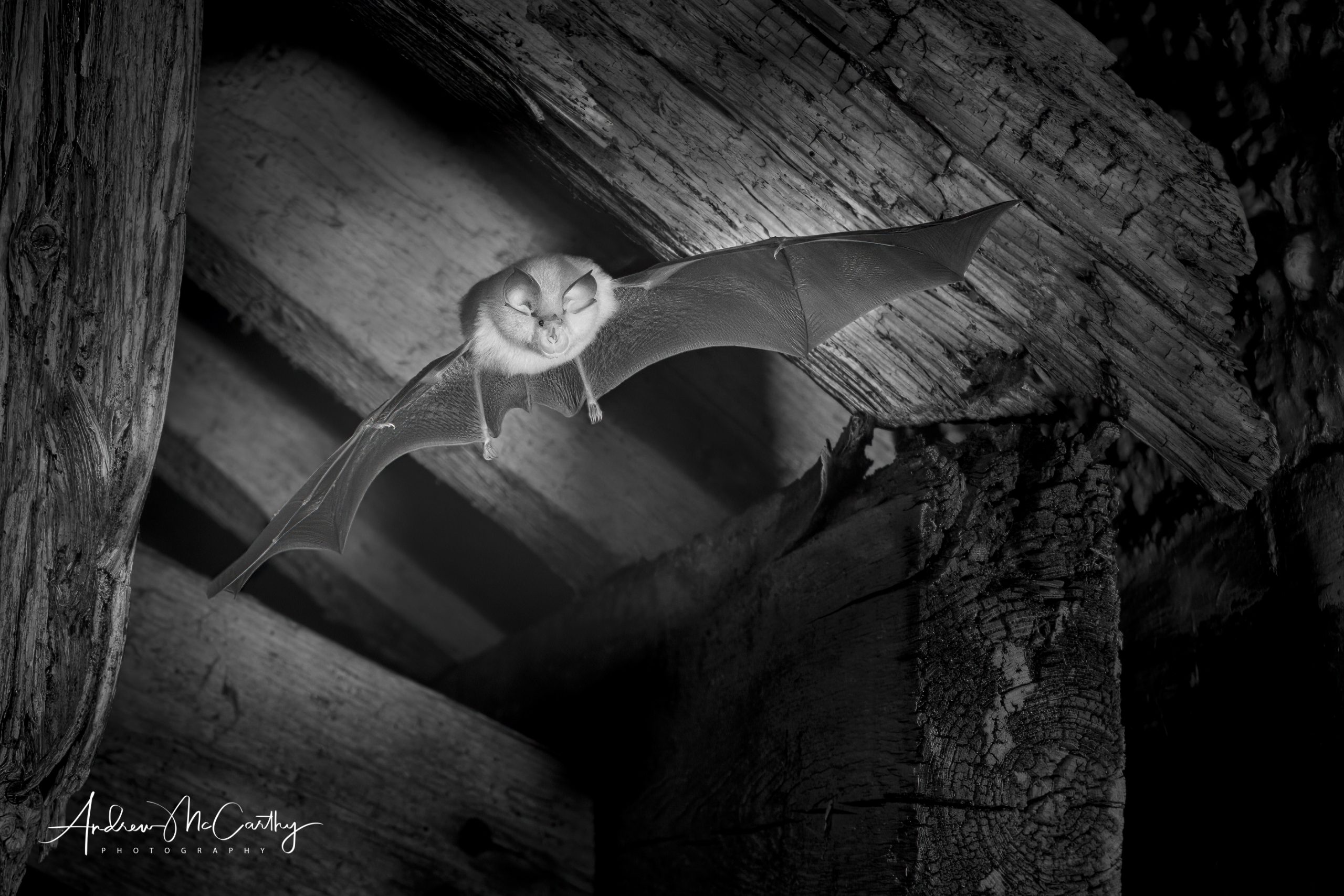
VWT has been acquiring, managing and protecting roost sites of the rare horseshoe bats for more than 30 years, including the site of western Europe’s largest colony of greater horseshoe bats. These roosts are used by some 50% of Britain’s greater horseshoe bats and a significant proportion of our lesser horseshoe bats.
Bats are vulnerable to the extremes of weather associated with climate change, and the partial recovery of horseshoe bat populations in Britain could be reversed by the likely increase in frequency of extreme weather events.
During the milder and wetter winters more commonly experienced in recent years, bats will often remain in the cool areas of their summer roosts rather than heading for their winter hibernation sites. Unfortunately, summer roosts are often less well-insulated and offer less protection, so the bats that remain are vulnerable to sudden cold snaps. More frequent cold and wet weather in the spring affects roosting and foraging conditions, reducing the birth rate and the survival rates of young bats. As if this were not enough to contend with, during hotter and drier summers, many roof spaces become uninhabitable for bats.
This funding will allow us to enhance roosts using proven techniques such as the installation of hot and cool boxes to provide a range of stable microclimates, thus significantly reducing the negative impacts of climate change and securing these vital sites for the future.
Read the full press release here.

Photo: Lesser horseshoe bat ©Andrew McCarthy